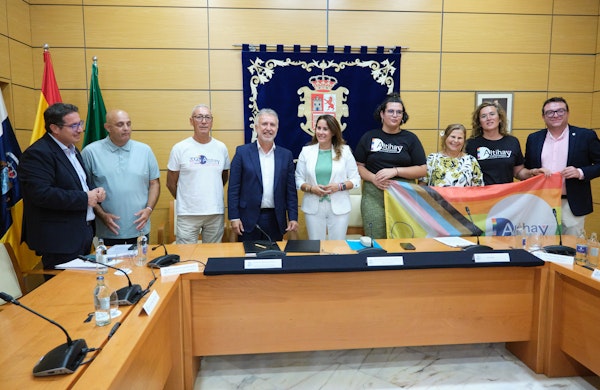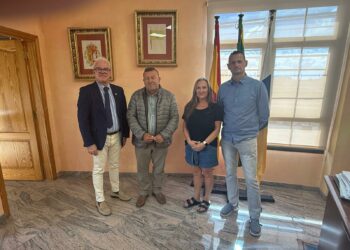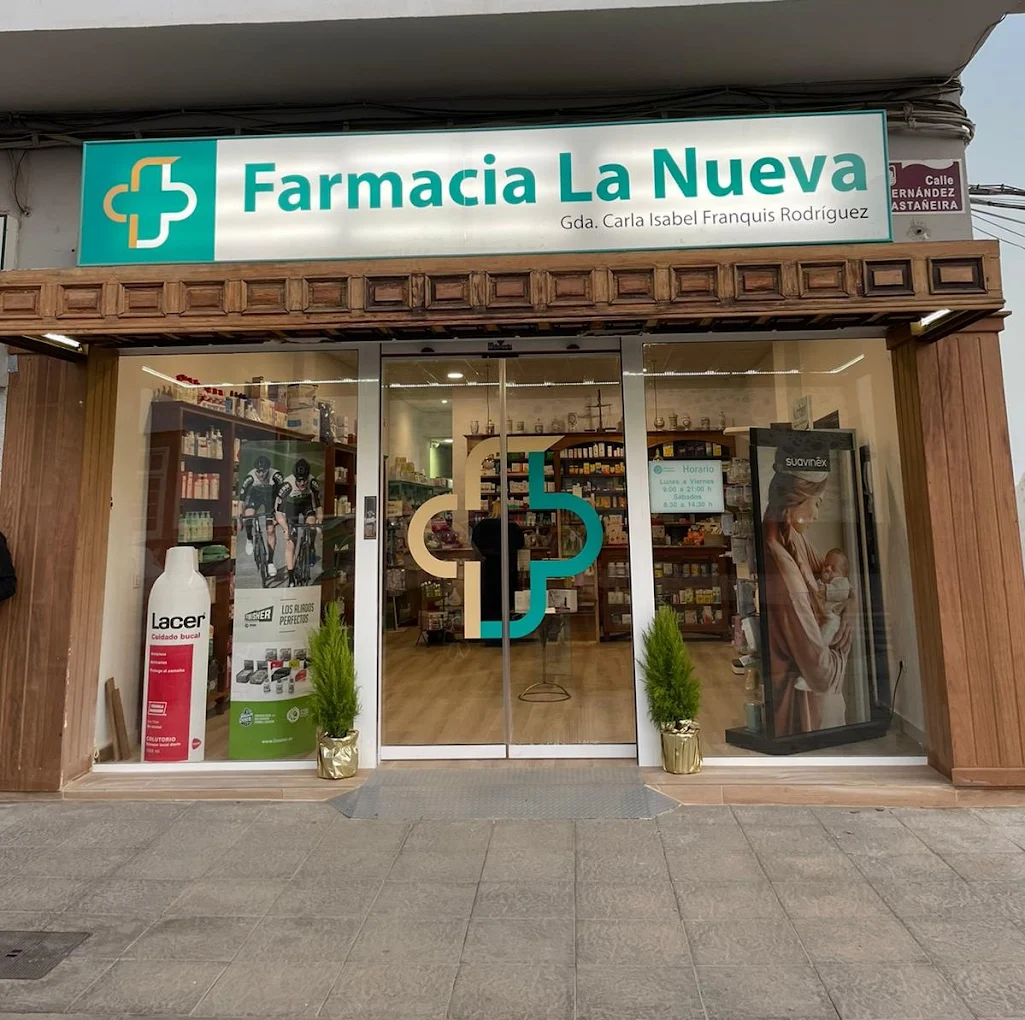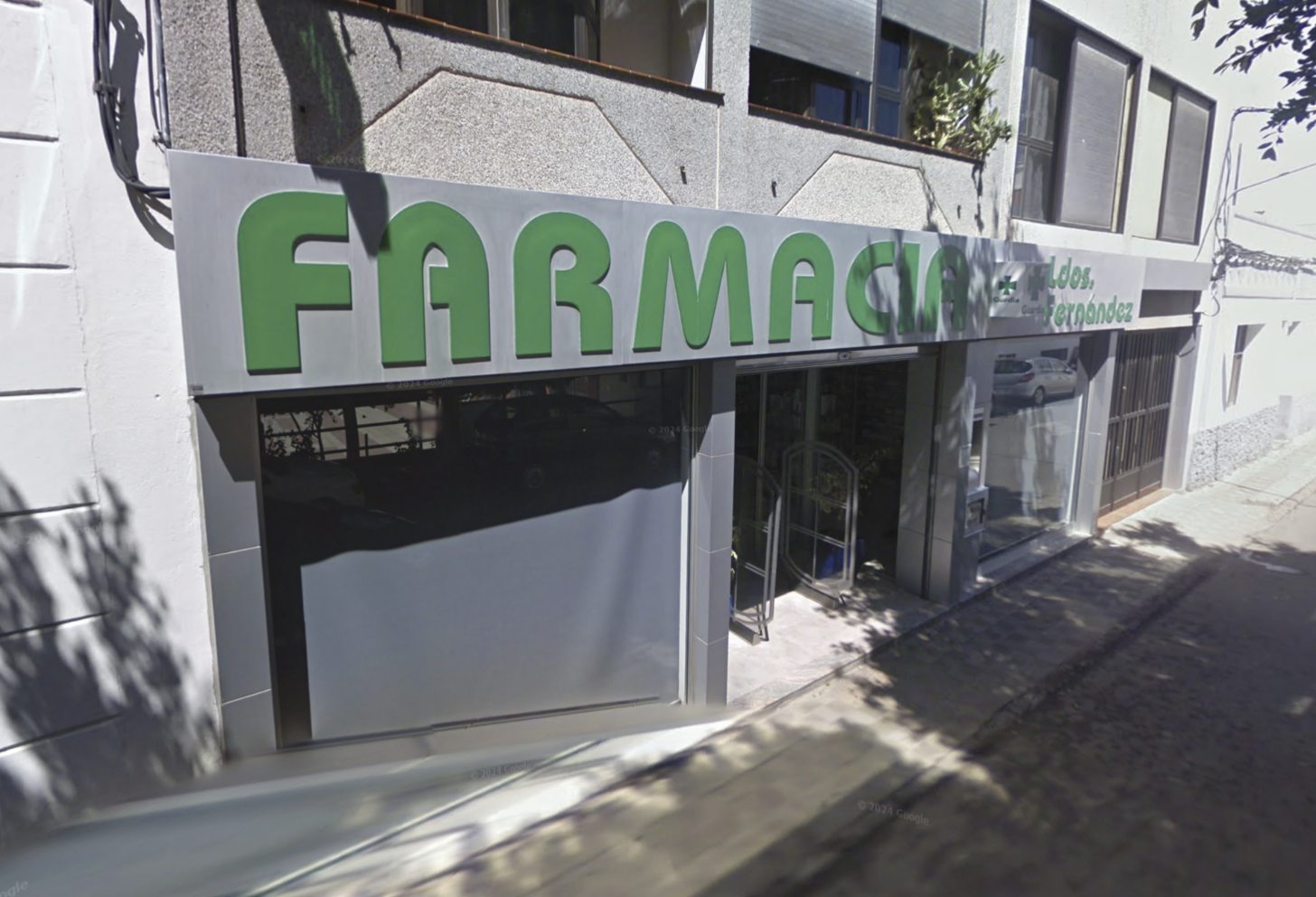The Cabildo of Fuerteventura has formalized today the protocol to obtain the financial support to convert Tefía in a space for the memory of the victims.
The facilities of the Youth Hostel of Tefía are getting closer to become a space for the memory of LGTBIQ+ victims, thanks to the project promoted by ALTIHAY Fuerteventura, hand in hand with the Cabildo, which will launch the future Canary Center for Interpretation of Historical Memory LGTBIQ+ in this space.
With this initiative, ALTIHAY Fuerteventura and Cabildo of Fuerteventura, through the Department of Social Action, Diversity and LGTBIQ+, aim to make Fuerteventura a reference of historical memory, with the support of other institutions.
Today, the president of the Cabildo, Lola García, has signed the protocol by which the economic support of 100,000 euros is obtained to start the first works to have the project, thanks to an agreement signed with the Minister of Territorial Policy and Democratic Memory, Ángel Víctor Torres.
Lola Garcia stressed that “we are getting closer to realizing the dream for which ALTIHAY Fuerteventura has worked for over twenty years, to remember the victims who were persecuted for a long time and especially those who were held in the former Agricultural Prison Colony of Tefía”.
Garcia recalled that, in December 2024, a first step was already taken with the opening in these facilities of the space ‘Tefía Lugar de Memoria Democrática LGTBIQ+’, which contains a permanent exhibition thanks to the coordination between ALTIHAY Fuerteventura and the Youth Department of the Cabildo. “We thus begin the transformation of this location, which was once a symbol of oppression, into a place for vindication.” “Fuerteventura will not take a step back in the defense of equal rights of people.”
For his part, Angel Victor Torres, thanked the Cabildo for this reception, “on an important day for Fuerteventura and its historical memory”. “Today we signed this agreement for the financing of the first works of musealization and, in addition, has also been published today in the Official State Gazette the initiation of the proceedings for Tefía to be declared a place of democratic memory, for the dignity of people.”
On behalf of ALTIHAY Fuerteventura, its president Carla Soto thanked the support received. “Today is a very special day, because we remember those who are no longer here, but who fill us with history. We dedicate this achievement to all the people who have fought for this project to become a reality, as part of our identity: a memory that hurts but also drives us to continue fighting for our rights to build a fairer, freer and prouder Fuerteventura.”
The vice president of the Cabildo of Fuerteventura, Blas Acosta, said that “this is a historic day for Fuerteventura, as it will become a place that was used for repression, in a space to reclaim freedom”. Acosta thanked Altihay “for his perseverance” and Minister Angel Victor Torres “for his commitment to the truth”.
The mayor of Puerto del Rosario, David de Vera, congratulated the action of the Cabido, Altihay and the Ministry for giving value to this place for the historical memory “so that we do not take a step back before future challenges and rights that have been achieved with all this effort. He also showed his willingness to work together in this center.
The event was also attended by the Councillor for Social Action, Diversity and LGTBIQ+, Victor Alonso, as well as the Councillor for Youth, Adargoma Hernandez, who hope that this space will serve as an attraction for all those who want to know the history, keeping alive the LGTBIQ+ movement in Fuerteventura and the Canary Islands. Also in attendance were the subdelegate of the Government in the province of Las Palmas, Teresa Mayans, the insular director of the General Administration of the State, María Jesús de la Cruz, and other councilors and councilors of the Cabildo and City Council, respectively, in addition to the honorary president of Altihay, León Martín.
The so-called Colonia Agrícola Penitenciaria was located in Tefía, in the municipality of Puerto del Rosario, and operated for eleven years. Since 1954, the so-called Vagos y Maleantes Law began to include homosexuals. This was the first colony of this type that operated in Spain, in the facilities of the first airport of Fuerteventura, until its closure in 1966.













